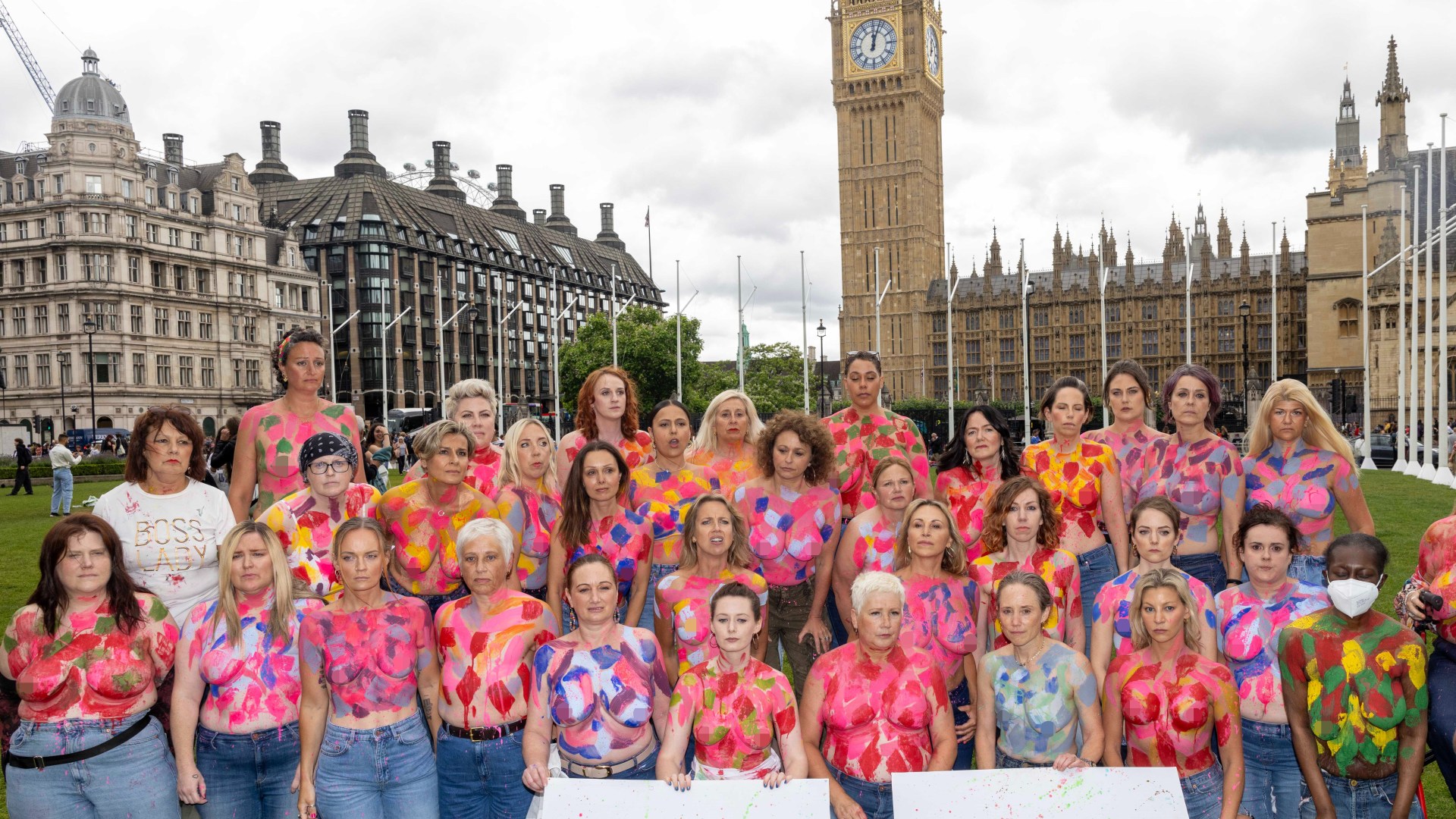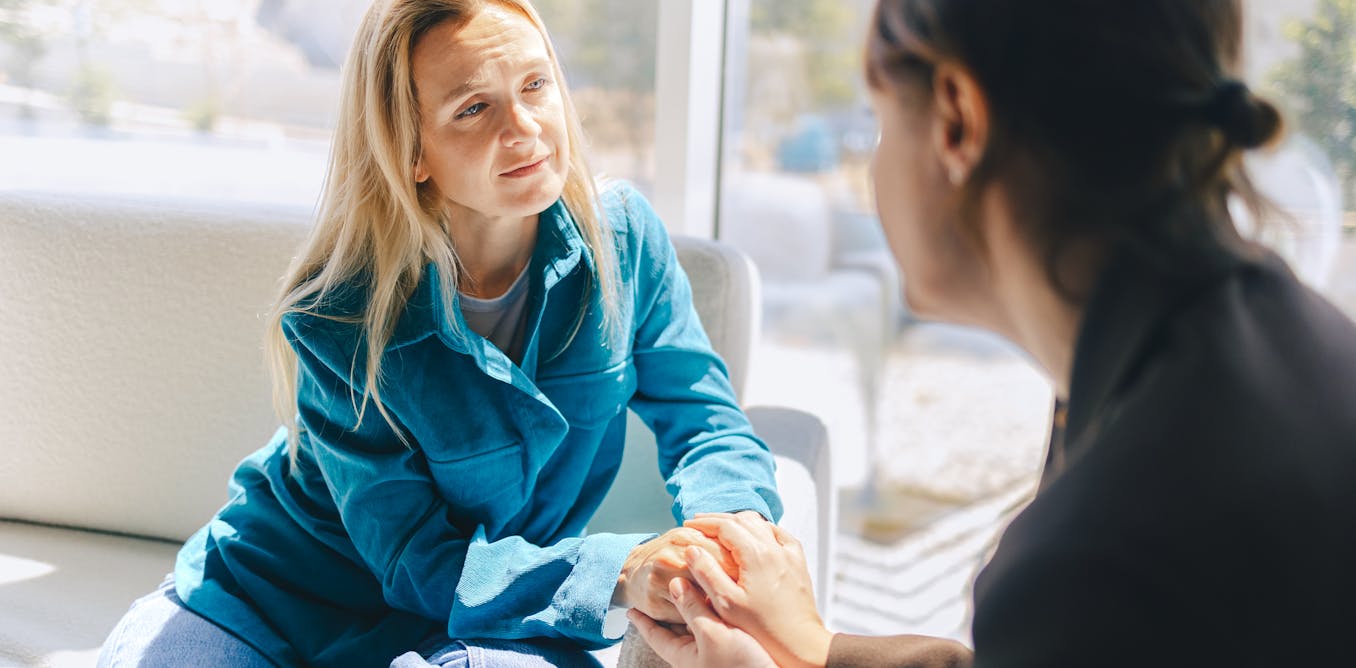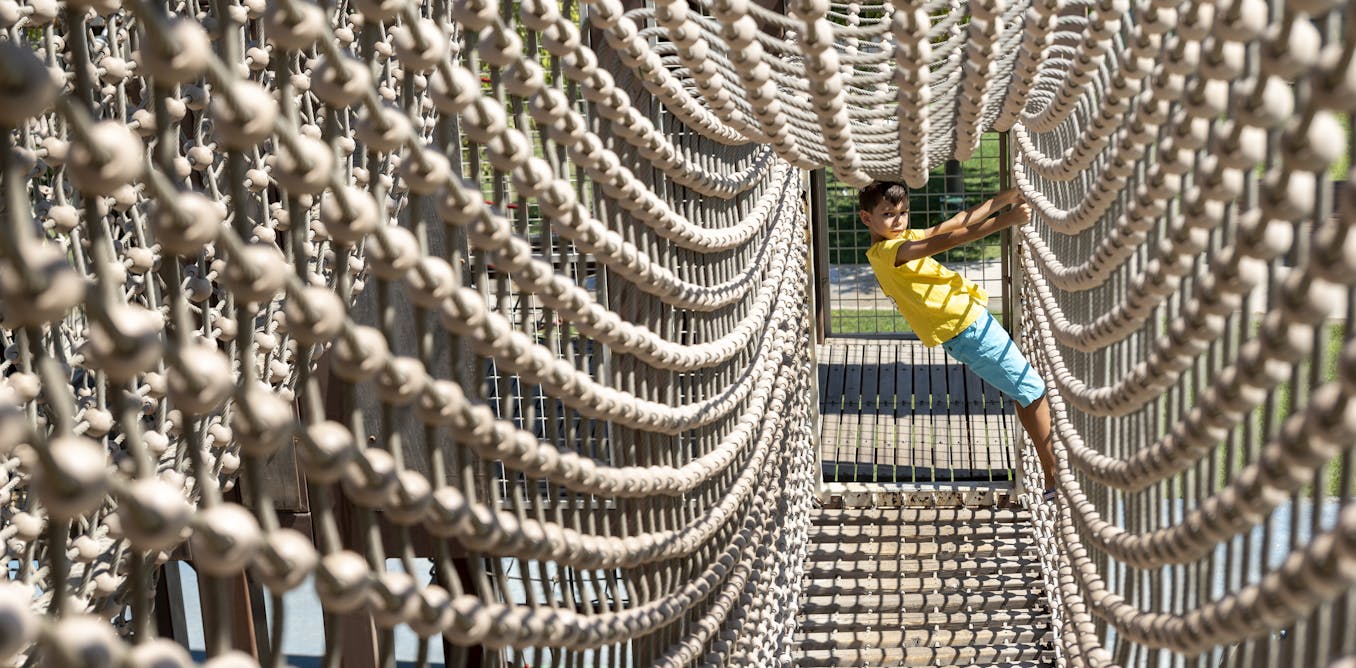NADIA Sawalha has bravely stipped off in front of Westminster in a desperate plea to get a cancer drug approved by the NHS, warning “time is running out”.
The Loose Women star, 59, and 30 others took the bold move to “introduce themselves” to the new Government, urging the new secretary for health, Wes Streeting to take action.

4

4
The 31 women bore their naked – but painted – chests, representing the number of lives that are lost to metastatic breast cancer each day in the UK.
Enhertu is a pioneering drug that can give women with advanced and incurable breast cancer more moths or even years with their loved ones.
In March it was announced that the treatment was blocked for widespread NHS use in England and Wales after the drug was deemed ‘too expensive’, despite being available in Scotland and at least 16 other European countries.
Breast Cancer Now says women have died waiting for the drug after the election stalled any progress that had been made by campaigners.
Read more on breast cancer
Former MPs Craig Tracey and Penny Mordaunt had brought the discussion to Parliament after meeting with campaigners before the landslide victory for Labour last week.
A nervous Nadia, who has been campaigning along close friends with the disease, told The Sun she had never done something like ths before but felt it had “come to this”.
She said: “[When] the election was called, absolutely nothing could be done, no decisions could be made, which is heartbreaking for everybody because it’s just stalling again when women are looking at weeks or months.
“That’s why we want to get in quick and introduce ourselves to the new Government and make them understand that we aren’t going to be quiet.
“Time is running out for some women, and this is a minuscule amount of money in the big scheme of things.
“These women are feeling worthless.
“We’re not going away, so they might as well say ‘yes’ now.”
Campaigning for trastuzumab deruxtecan, sold under the brand name Enhertu, began in September 2023 when Nice provisionally rejected use for the drug on the NHS.
It ramped up in March when it confirmed a price deal could not be made with drug companes Daiichi Sankyo and AstraZeneca.
It is estimated to cost £10,000 per patient per month in the US. But despite the NHS’ power to command lower prices, it failed to negotiate a deal that satisfied the Nice budget.
Wales and Northern Ireland usually follow drug decisions made in England, so patients in those nations will likely miss out too.

4

4
Nadia said: “When we’re told by AstraZeneca that they offered NHS England the drug for a much lower price than Scotland, that was the moment we were like, ‘What?’”
“It’s really cruel.
“As we all know, everyone will be touched by breast cancer in some way. This drug is incredible, it was given a standing ovation by oncologists from around the world, because it’s so incredible.”
We are still in limbo waiting. Whilst patients die. We’ve heard nothing.
Breast Cancer Now
Charities have been lobbying decision makers to come to an agreement after the devastating decision sent shockwaves through the medical community.
Breast Cancer Now has gained almost 300,000 signatures on its Enhertu Emergency petition and although it has met with key parties on numerous occasions, they have been met with a ‘deafening silence’ in recent weeks.
Discussions with all parties were being held in May but it is unclear when or if they will resume.
Enhertu is already given to some patients with secondary breast cancer, but those with HER2-low secondary breast cancer have been denied the drug, despite trials showing its benefits.
Around 1,000 women a year in England would benefit from the drug – and are watching other women around the world benefit from the drug.
Breast Cancer Now said: “We are still in limbo waiting. Whilst patients die. We’ve heard nothing.”
Enhertu ‘twice as good as chemo’ – what is it?
BREAST cancer trastuzumab deruxtecan (Enhertu) could be twice as good as chemotherapy.
Six in 10 women with incurable cancer saw their tumours shrink after being given trastuzumab deruxtecan.
For women receiving standard chemo, only three out of ten experienced the same outcome.
The drug held the disease at bay for an average of 13 months, compared to eight months.
All the women in the trial had a form of cancer called HR-positive, Her2-low that had spread and not responded to hormone therapy.
The trial, presented at the American Society for Clinical Oncology conference, tested Enhertu on nearly 900 patients.
It reduced the risk of disease spread or death during the 18-month trial by 37 per cent compared to chemotherapy.
What is Enhertu?
Enhertu is a targeted (biological) therapy, which means it interferes with processes in cells that help cancer grow.
The drug works by latching onto the HER2 protein found on breast cancer cells and pumping antibodies into the cells to damage their DNA and kill them.
The drug is developed and commercialized by Daiichi Sankyo and AstraZenca.
HER2 is a protein that helps breast cancer cells grow quickly – around one in five women with breast cancer are HER2-positive.
They could get Enhertu on the NHS if their cancer spreads.
But those diagnosed with HER2-low secondary breast cancer – around 1,000 women a year in England – have been denied the drug, despite trials showing its benefits.
HER2-low is a newly classified subgroup of breast cancer previously considered HER2-negative. People with HER2-low secondary breast cancer have low levels of HER2-expression.
Artist Sophie – renowned for her nude portraits and who recently sold out the London Palladium – painted a range of powerful messages on the women’s chests including ‘We could be your sister’, ‘Our lives count’, ‘Help us to live’ and asking ‘Now do you see us?’.
Nadia says: “We are here to be heard.
“If this is what it takes to turn heads back in our direction and put Enhertu back on the agenda, so be it. We have been ignored for too long.”
Nadia was joined by close friend Hannah Gardener, 37, who has stage 4, incurable breast cancer, Helen Addis, an ITV producer, and Caroline Shaw, who are both breast cancer survivors.
Helen Addis, breast cancer survivor and campaigner, says: “Enhertu is rightly available in Scotland and 14 other European countries but how can we have such health inequality within the UK? It’s a postcode lottery like no other. It’s scandalous.”
Hanah said: “We feel ignored. It’s been over two months since patients met with NICE, NHS England, Daiichi Sankyo and Astrazeneca at an APPG in parliament and were promised the key players would get back around the table to thrash out a deal. But it hasn’t come.”
Enhertu could give Hannah another six months with her four-year-old daughter, Lilah.
Hannah was given her primary breast cancer diagnosis in 2013, aged 26. After undergoing treatment her disease returned twice more in 2017 and 2020.
Two years later, in June 2022, Hannah was given the news that she had stage 4 incurable breast cancer, specifically HER2-low breast cancer.
Enhertu is the first licensed targeted treatment for patients with HER2-low breast cancer that cannot be removed surgically or has spread to other parts of the body, also known as metastatic breast cancer.
Treatment like Enhertu for secondary breast cancers aim to slow the growth of tumours.
While spearheading the fight for Enhertu to be approved – and having talks in Westminster – Hannah has now joined a drug trial which ironically, is trialling Enhertu in combination with another medicine at the Royal Marsden.
But scans she has had as part of the trial have discovered that she has a tumour on her liver.
She wrote on Instagram in April: “I’m not the most spiritual person but something has to be said for living and breathing Enhertu these last few weeks and then an existing study happening to launch an Enhertu combination trial arm in that time.
“And not only that…a precious trial ‘slot’, of which there aren’t many (and for which there is a worldwide waiting list!) opening up and being allocated to the Royal Marsden on the very week I needed it…it’s a bit lucky.”
Breast Cancer Now has also raised concerns about the new system used by NICE to approve drugs that ‘effectively’ downgraded metastatic breast cancer to a ‘moderately severe disease’.
The charity argued that under the old system, Enhertu would have met the cost-effective threshold and been approved.
Breast Cancer Now said: “A system that doesn’t allow for a treatment with this level of benefit to be made available on the NHS is a flawed one.”
What are the signs of breast cancer?
Signs and symptoms
Stay alert to symptoms of breast cancer which include:
- A lump or swelling in the breast, upper chest or armpit
- A change to the skin, such as puckering or dimpling
- A change in the colour of the breast – the breast may look red or inflamed
- A nipple change, for example, it has become pulled in (inverted)
- Rash or crusting around the nipple
- Unusual liquid (discharge) from either nipple
- Changes in the size or shape of the breast
On its own, pain in your breasts is not usually a sign of breast cancer. But look out for pain in your breast or armpit that’s there all or almost all the time.
Although rare, men can get breast cancer. The most common symptom of breast cancer in men is a lump in the chest area.
Check your breasts
There’s no special way to check your breasts and you do not need any training. At Breast Cancer Now, they say, it’s as simple as TLC: Touch, Look, Check:
- Touch your breasts: can you feel anything new or unusual?
- Look for changes: does anything look different to you?
- Check any new or unusual changes with a GP
Breast cancer is the most common cancer in the UK with around 56,400 new cases every year, accounting for 15 per cent of all new cancer cases.
In females in the UK, breast cancer is the second most common cause of cancer death, with around 11,400 deaths every year.




